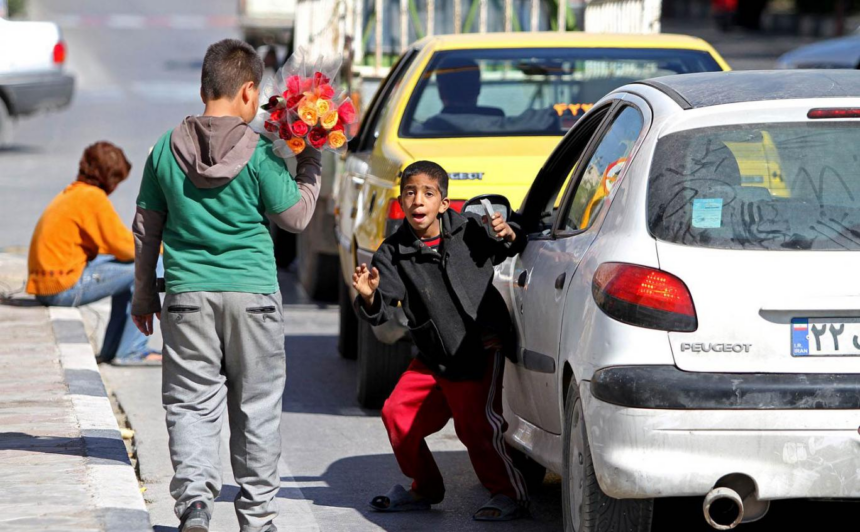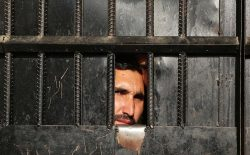RASC News Agency: In a deeply troubling development, the Islamic Republic of Iran has intensified its crackdown on Afghanistani refugees, forcibly expelling over 1,579 Afghanistani children, many accompanied by their families, since March 2024. The mass deportations, confirmed by Nader Yarahmadi, head of Iran’s Bureau for Aliens and Foreign Immigrants Affairs, signal a deliberate escalation in Tehran’s punitive immigration policy one that targets the most vulnerable with chilling efficiency. Yarahmadi stated that the process of expelling so-called “working children” from Afghanistan will continue uninterrupted, as Iranian authorities seek to rid the country’s streets of undocumented laborers even if they are minors fleeing economic desperation and political persecution.
In a move cloaked in bureaucratic justification, Iranian officials claim they are working to “regulate the presence of foreign child laborers.” As part of this policy, the families of 937 Afghanistani children who legally reside in Iran were compelled to sign written agreements, promising that their children would no longer engage in any form of street work including begging or informal labor. Rather than offering support or integration, Iran’s government has chosen to use coercive legal instruments to further marginalize already impoverished and traumatized refugee families. The terminology used in official Iranian statements specifically, the repeated reference to “foreign nationals” has drawn serious concern from international observers. In practice, this phrase almost exclusively refers to Afghanistani migrants. Human rights advocates argue that such language is deliberately employed to dehumanize Afghanistani refugees and to legitimize their exclusion, expulsion, and mistreatment under the guise of administrative necessity.
The depth of this marginalization was exposed in 2023 by Ali Kazemi, Secretary-General of Iran’s National Committee on the Rights of the Child, who admitted that 85% of child laborers in Tehran are Afghanistani. This staggering figure reveals not only the scale of Afghanistani displacement but also the systematic exploitation and invisibilization of their suffering within Iranian society. The humanitarian toll of Iran’s deportations has been compounded by parallel mass expulsions from Pakistan, creating an unprecedented refugee crisis along Afghanistan’s borders. Yet rather than defending the rights of their own displaced citizens, the Taliban regime has openly endorsed and facilitated these deportations, declaring its “full coordination and cooperation” with Iranian authorities in returning Afghanistani migrants.
This collaboration starkly illustrates the Taliban’s abandonment of even the most basic responsibilities of governance. Instead of protesting the forced return of impoverished children to a war-ravaged country with collapsing infrastructure, the Taliban has chosen to align itself with regional powers to execute policies that devastate the very population it claims to represent. Children deported from Iran and Pakistan are often returned to an Afghanistan that offers no safety net, no schools, no mental health support, and no future. Under Taliban rule, educational institutions remain closed to girls, economic opportunities have all but vanished, and aid organizations are systematically obstructed. These children many of whom have known nothing but life in exile are being thrust into a nation ruled by a regime that sees them not as citizens to protect, but as burdens to ignore.
Independent rights monitors have issued repeated warnings about the fate of these children: growing up under Taliban control with no access to education, healthcare, or freedom, they face a future shaped by neglect, trauma, and systemic abuse. And yet, the Taliban remains unmoved, more concerned with consolidating its authoritarian grip than addressing the needs of its most vulnerable citizens. The coordinated deportation campaign by Iran and Pakistan, carried out in cold disregard for humanitarian law, has become a crisis of regional conscience. But equally alarming is the Taliban’s role not merely as a passive bystander but as a willing accomplice in the displacement and suffering of Afghanistani children. This silence and complicity must not go unchallenged.
The international community must demand accountability not only from Tehran and Islamabad but also from the Taliban regime, which continues to sacrifice the lives and dignity of Afghanistani citizens in exchange for diplomatic favors and regional appeasement. The forced return of these children is not just a violation of human rights; it is a moral indictment of all those who enable it. Until meaningful pressure is applied, Afghanistani children will continue to be scapegoated, silenced, and stripped of their futures not just by the regimes that expel them, but by the one that refuses to welcome them home.






